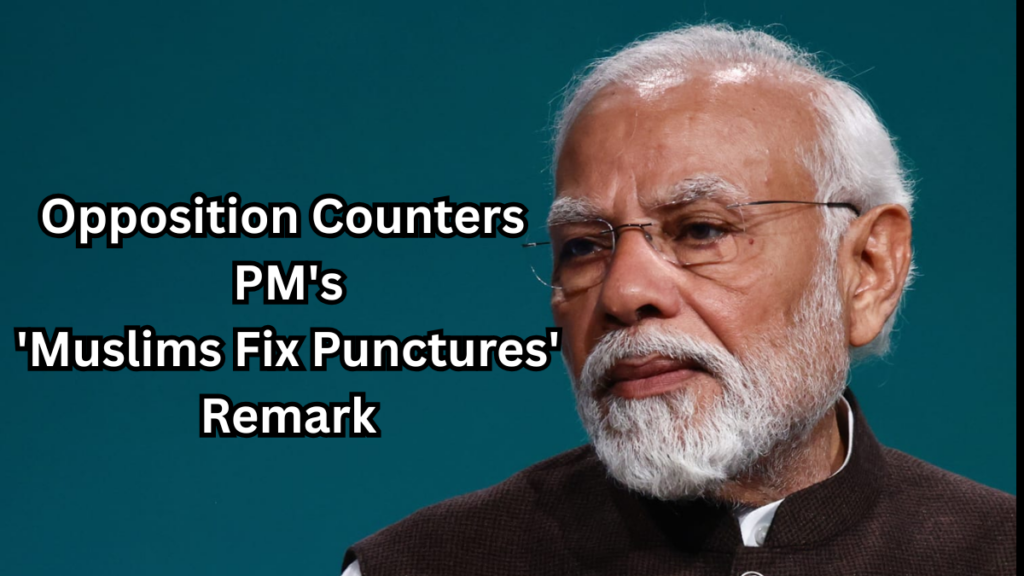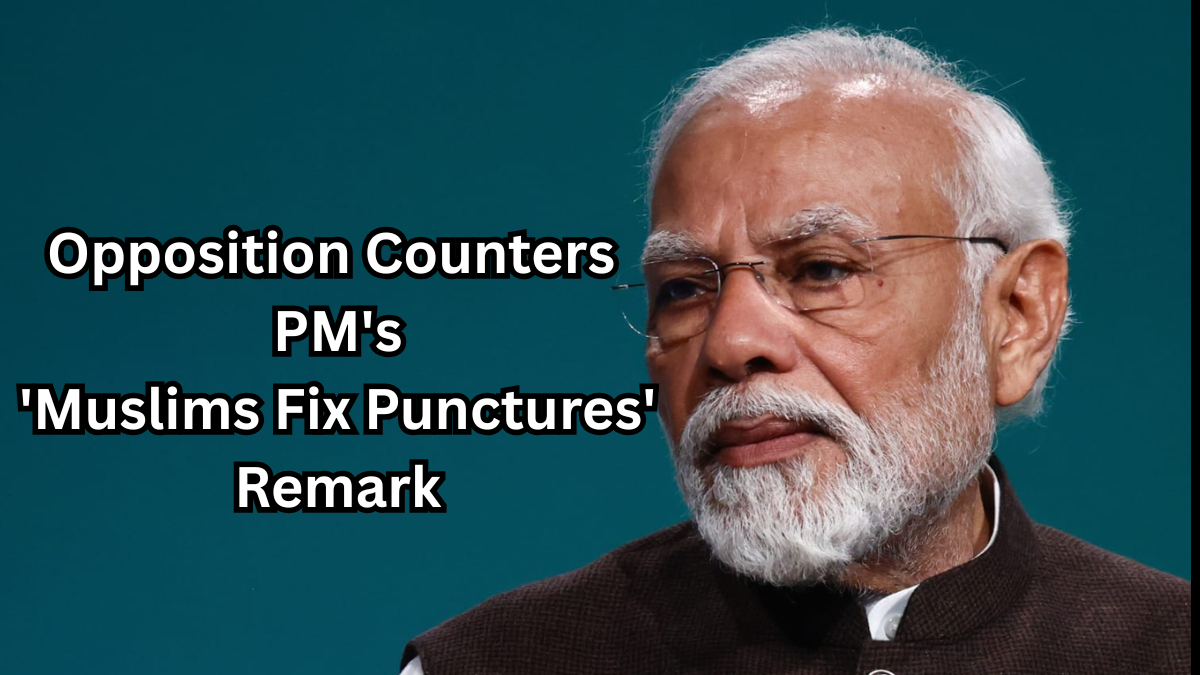Prime Minister Narendra Modi’s recent remarks about Muslim youth and Waqf properties have ignited a nationwide debate, drawing sharp reactions from opposition leaders and community representatives. The controversy centers around the newly enacted Waqf (Amendment) Act, 2025, which aims to reform the management of Waqf properties in India.

The Spark: PM Modi’s Controversial Comment
During the inauguration of an airport in Hisar, Haryana, Prime Minister Modi stated that if Waqf properties had been utilized honestly, Muslim youths wouldn’t have to rely on repairing bicycle punctures for a livelihood. He accused a “land mafia” of misusing these properties, depriving marginalized communities of their rightful benefits.
Opposition Leaders Respond
The Prime Minister’s comments have been met with strong criticism:
-
Asaduddin Owaisi (AIMIM Chief): Retorted that if the RSS had used its resources for national interest, Modi wouldn’t have had to sell tea in his youth. He questioned the government’s contributions to the poor over the past 11 years.
-
Imran Pratapgarhi (Congress MP): Described the PM’s remarks as derogatory, stating that such language is typical of social media trolls. He highlighted the lack of job opportunities leading youths to menial jobs and criticized the BJP for sidelining Muslim leaders.
-
Supriya Shrinate (Congress Spokesperson): Questioned the PM’s commitment to inclusivity, pointing out the absence of Muslim MPs in the BJP and the lack of a Dalit Chief Minister in the party.
Understanding the Waqf (Amendment) Act, 2025
The Waqf (Amendment) Act, 2025, recently passed by the Indian Parliament, introduces significant changes to the management of Waqf properties:
| Key Amendments | Details |
|---|---|
| Inclusion of Non-Muslims | Non-Muslims to be part of Waqf Boards for administrative purposes. |
| Representation of Muslim Women | Mandatory inclusion of at least two Muslim women in Central and State Waqf Boards. |
| District Collector’s Role | Empowered to determine ownership of disputed Waqf properties. |
| Removal of ‘Waqf by User’ | Eliminates recognition of properties as Waqf based on long-term use without formal documentation. |
| Centralized Registration | Introduction of a central portal for Waqf property registration and management. |
Points of Contention
While the government asserts that the amendments aim to enhance transparency and efficiency, critics argue:
-
Erosion of Religious Autonomy: Inclusion of non-Muslims in Waqf Boards may infringe upon the religious rights of the Muslim community.
-
Potential for Property Usurpation: Empowering district collectors to decide on Waqf property ownership could lead to misuse and loss of community assets.
-
Undermining Traditional Practices: Removal of ‘Waqf by User’ disregards historical practices where properties were recognized as Waqf based on long-standing community use.
Frequently Asked Questions
Q1: What is a Waqf property?
A Waqf property is an endowment made by Muslims for religious, educational, or charitable purposes, often in the form of land or buildings.
Q2: Why is the inclusion of non-Muslims in Waqf Boards controversial?
Critics believe it may compromise the religious autonomy of Waqf institutions and lead to potential mismanagement of properties intended for Muslim communities.
Q3: How does the new Act affect the management of Waqf properties?
The Act centralizes the registration process, introduces non-Muslim members to the boards, and gives district collectors authority over property disputes, aiming for increased transparency but raising concerns over autonomy.
Q4: What are the implications of removing ‘Waqf by User’?
Eliminating this provision means properties long used for religious or charitable purposes without formal documentation may no longer be recognized as Waqf, potentially leading to loss of such properties.
The debate over the Waqf (Amendment) Act, 2025, underscores the delicate balance between reforming institutional management and preserving religious and community rights. As discussions continue, the focus remains on ensuring that changes serve the intended purpose without marginalizing the communities they aim to support.
Click here to learn more
Pari is a passionate writer known for captivating stories that blend imagination and reality. Inspired by travel, history, and everyday moments, Pari crafts narratives that resonate deeply with readers.
